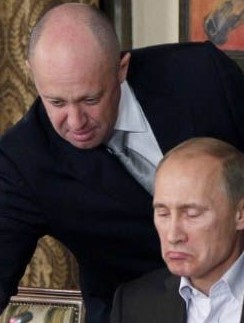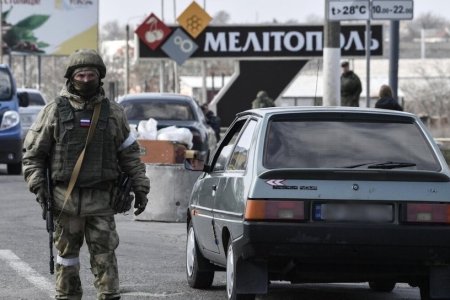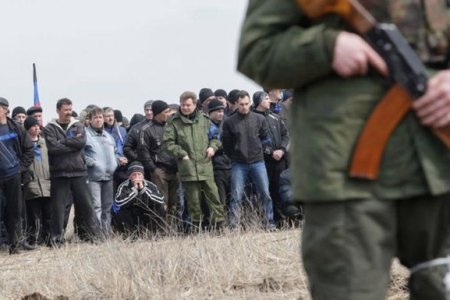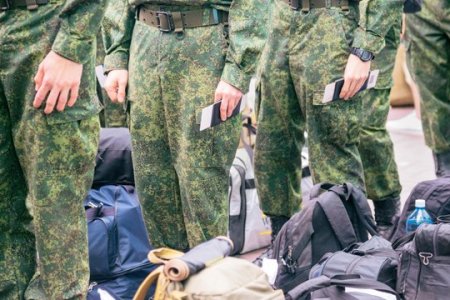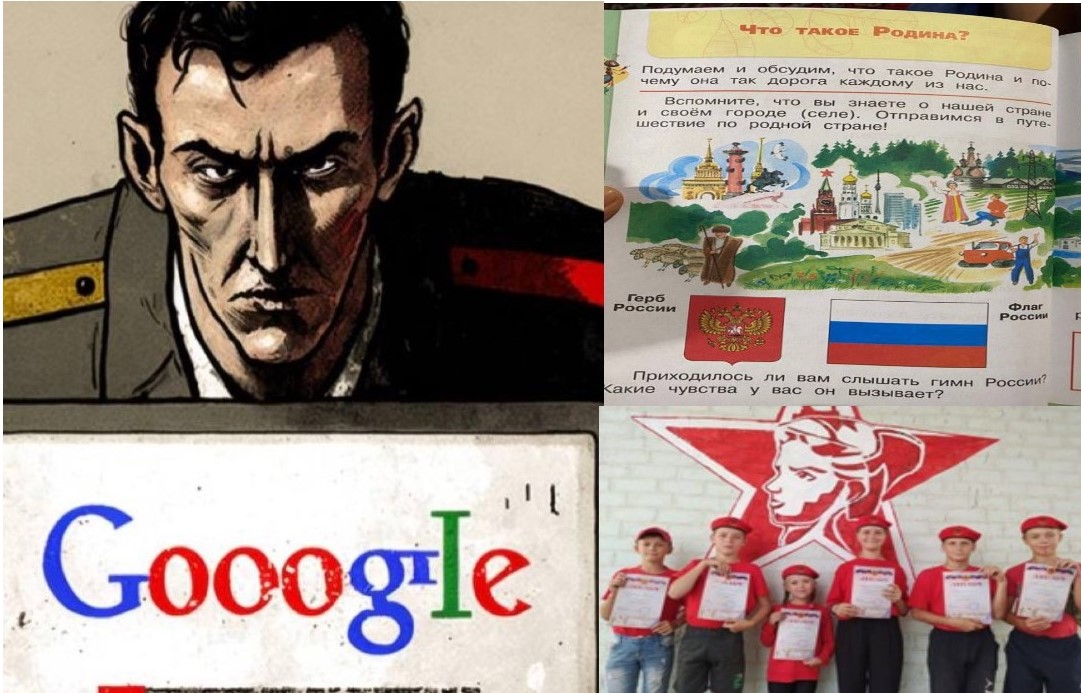
Russia’s FSB have, reportedly, totally blocked Google search and other services in occupied parts of the Donetsk oblast, with Zoom also not available. Plans to block Google on occupied territory were first announced in July 2022, however Petro Andriushchenko, Adviser to the Mayor of Mariupol, reports that Russian attempts to censor the Internet are, at least in Mariupol, gathering pace. So too are Moscow’s efforts to foist its false narrative and rewrite the facts about its genocidal war against Ukraine, especially among children and young people.
Russia set about blocking access to free information and destroying independent media in occupied Crimea and Donbas back in 2014. Indeed, whenever the Russian / Russian-controlled militants seized control of a part of the Donetsk or Luhansk oblast, one of the first steps taken was to cut off all Ukrainian sources of information and replace them with Russian or pro-Russian propaganda channels or stations. Within days of seizing control of Melitopol (Zaporizhzhia oblast) and Kherson, Russia installed its own equipment on the cities’ television towers and began broadcasting Russian state propaganda channels.
The list of independent channels or Internet websites that were blocked, unless people used VPN [virtual private networks], grew over the years, with Russia or its proxy Donetsk and Luhansk ‘republics’ very clearly targeting those outlets which told the truth about what was happening on occupied territory.
Russia’s attacks on truthful information and on those not afraid to speak the truth have sharply escalated since the beginning of its full-scale invasion of Ukraine. Within ten days of the invasion, it had introduced draconian legislation allowing for, and having already resulted in, long prison sentences for accurately reporting Russian atrocities in Mariupol, Bucha or other parts of Ukraine.
By late March, Russia had turned its attention to Google, with Roskomnadzor, Russia’s censor blocking Google News. It claimed that that news aggregator service circulated ‘false information’ about Russia’s war against Ukraine (which Moscow calls a ‘special military operation’).
The Russian proxy ‘Donetsk and Luhansk people’s republics’[DPR, LPR] both announced that they were blocking Google in July 2022. Denis Pushilin, the Russian-installed ‘DPR leader’ claimed that this was to “defend the population of Donbas” and that “the West and Ukraine are putting unprecedented pressure on the republic” with this aimed at “frightening residents of DPR, and breaking their spirit”. According to his rendition, there is “real persecution of Russians, foisting of lies and disinformation” with Google, supposedly, on the frontline in this and “propagating terrorism and violence against all Russians and, in particular, the population of Donbas.”
Pushilin further asserted that the blocking of a free, international search machine is “what happens in any society with criminals: they are isolated from others.” Leonid Pasechkin, Russian-controlled ‘LPR leader’ came out with similar nonsense, likening “fakes and disinformation” to the missiles “on our cities”, while failing to mention that the missiles were all being fired by Russia.
On 22 July 2022, citing local collaborator Kyrylo Stremousov, the Russian state-controlled RIA Novosti reported that [occupied parts of] the Kherson oblast were also blocking Google, as well as YouTube and Viber. All, Stremousov claimed, were being used “as elements of information terrorism”.
Since then, Moscow has staged fake ‘referendums’ and claimed that the ‘results’ of these justified annexation of four oblasts, not one of which does it fully control. Although it was claimed that there had been almost 100% support for ‘joining’ the aggressor state, within a month the Russians had announced new terror methods. Mobile telephones, for example, were to be checked for subscriptions to Ukrainian Telegram channels and other social media, with Russian leader Vladimir Putin’s decree on martial law cited as justification for this. The first time such a subscription was found, the person would receive a ‘warning’. Then there would be a fine, and finally criminal liability. In yet another chilling déjà vu from Soviet times, the collaborator - Volodymyr Rogov - who reported these measures reminded his readers about a telegram bot specially created by the invaders to encourage people to denounce others.
Andriushchenko does not cite specific examples of censorship in occupied Mariupol, but then he doesn’t really need to. The FSB has already terrorised Mariupol residents, forcibly deported to Russia into claiming that Russia’s most shocking war crimes were somehow committed by Ukrainians. This is while the latest long prison sentence in Russia was against journalist Maria Ponomarenko for posting information about Russia’s bombing of the Drama Theatre in Mariupol and likely killing of at least 300 civilians using the theatre’s basements as a (hoped) bomb shelter. Russia is literally using terror to try to silence the truth about its crimes, while foisting an entirely surreal ‘version’ both of history and of recent events in occupied parts of Ukraine.
Update
The Centre for Journalist Investigations reported on 17 February, citing residents of all occupied areas, including Crimea, that Russian Internet providers have recently been reducing speed, as well as blocking access to most Ukrainian websites. In areas that have been under Russian occupation since 2014, a large number of independent websites have long been blocked. Now, however, the Russians are also trying to restrict access to such sites via VPN, as well as obstructing access to social media and YouTube. CJI assumes that the intensified measures are linked with the invaders’ military plans.
